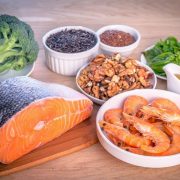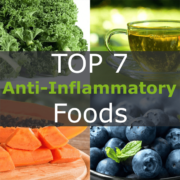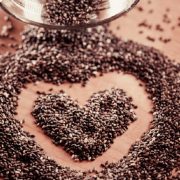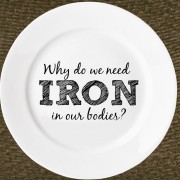Gluten-free diet does not mean giving up of grains. Below is an overview even 7 grains that don’t have gluten.
Gluten is really a part of everyday life and sometimes it seems almost unthinkable to make a meal that does not have it. However, for people with celiac Disease is completely banned. Gluten-free diet usually involves abstaining from grains, especially foods that are rich in gluten.
American nutritionist Korrin Fotheringham tells about 9 grains that do not contain gluten. Best of all, it is easy to prepare and are very tasty and nutritious.
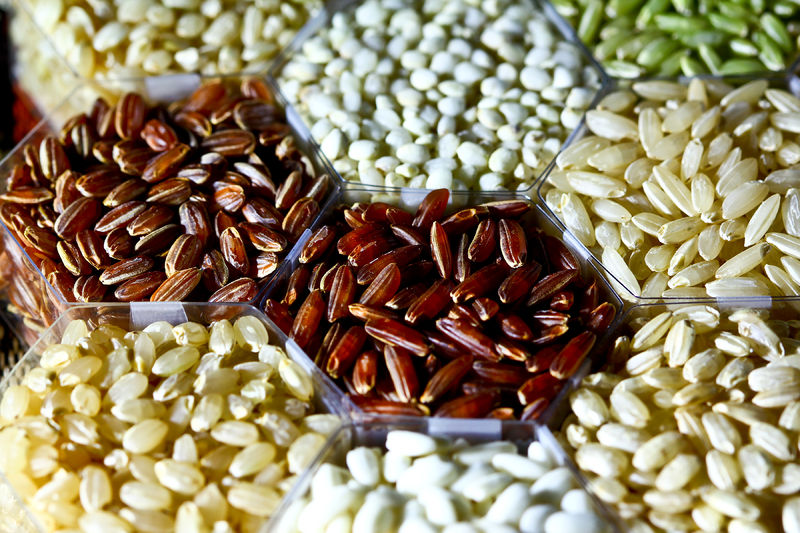
Rice
Rice is the global cereal used for centuries. It is rich in thiamine and does not contain gluten. If you want to balance the level of sugar in the blood, opt for basmati rice, which will make longer digestion. For larger proportion of fiber, it is recommended integral (brown) rice that is cooked a little longer than usual.
- Boil a cup of rice in two cups of water; it will take more than ten minutes.
- To prepare integrated rice, 1 cup of cereal should cook in 2-3 cups of water. It will take 45 minutes to an hour.
Amaranth
Amaranth originated from South America, and is rich in fiber and vitamin C. It is great for all the people who are struggling with celiac Disease because it positively affects the restoration of the entire digestive system.
- For a full breakfast, you can mix one-third cup amaranth and 3/4 cup gluten-free oats and spice. All of this season with a little salt and add 4 cups of water and let it cook for about half an hour.
Buckwheat
Buckwheat is a traditional peasant dish rich in calcium and B vitamins. It has a special and distinctive flavor, and is usually prepared in the form of slurry.
- To prepare buckwheat porridge cook for 15-20 minutes on low heat with the addition of butter or olive oil and a little salt.
Millet
Millet is a grain that is often marginalized in modern times and not so much in use. However, it is very nutritious, easy to digest, pretty cheap and cost effective, and is rich in potassium and B vitamin. In addition, millet can regulate pH inside our body and thus help to maintain the acid-base balance of the organism.
- To prepare a cup of millet grains, need to cook on low heat for about thirty minutes with the addition of 2-3 cups of water.
- Millet can be prepared in the form of pudding. Boil 4 cups of Millet in a mixture of water and fruit juice for 45 minutes to an hour.
Corn
Corn and corn flour are rich source of fiber, vitamin C, and vitamin A. If you have suffered from celiac disease and trying to rebuild your cells and the amount of vitamin A in the body, polenta is the right choice for you.
It is important to note that the market is flooded with genetically modified corn and it may be wiser to opt for corn grits from organic cultivation.
- Corn can be prepared and consumed in many different ways, including polenta. Polenta is a very tasty and nutritious form of corn that can be served with almost any meal.
Quinoa
Quinoa has recently become one of the most popular and famous cereal. Is rich in iron and protein, and in particular is often used by people who do not eat meat or animal foodstuffs.
- Cook a cup of quinoa in just 10-minutes with the addition of 3 cups of water.
Oats
A Day is starting with oatmeal for a large number of people around the world. Oats are very high in fiber and protein. Oats does not contain gluten, but during processing, is possible to be”infected” with gluten so be sure to look at the products that the label states that do not contain gluten.
- A recipe for preparing oatmeal is quite similar as with other cereals; boil a cup of oats in 2-3 cups of water for 15 minutes (depending on the density that you want to get).
That is our gluten-free grains list for today. If you know others, be free to comment.

